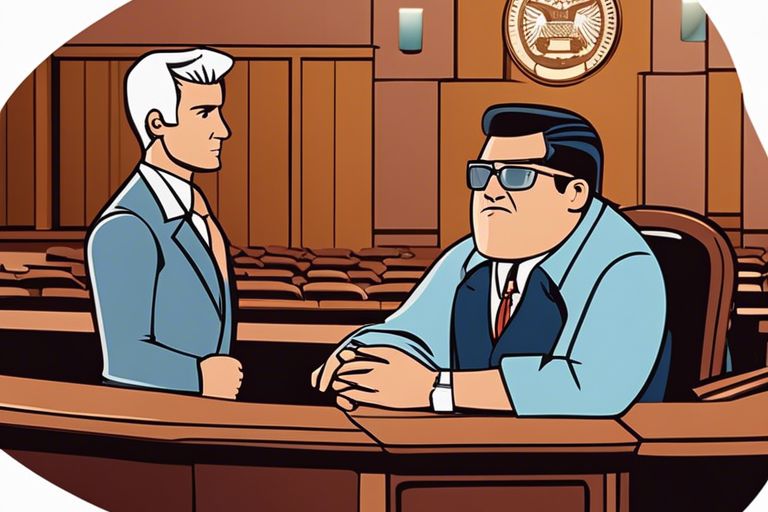Most defendants facing DUI charges in Arizona may seek various defense strategies to mitigate their circumstances. However, one avenue that could potentially provide a unique defense is by pleading automatism. Automatism is a legal concept that argues the defendant was not in control of their actions at the time of the offense due to unconsciousness, a medical condition, or involuntary intoxication. While asserting automatism in an Arizona DUI defense can be challenging, if successfully argued, it could exonerate the defendant from criminal liability. In this blog post, we will probe into whether an aggrieved defendant can effectively plead automatism in an Arizona DUI defense and the factors that may influence the success of this defense strategy.
Key Takeaways:
- Automatism as a Defense: In Arizona, an aggrieved defendant can potentially plead automatism as a defense in a DUI case. Automatism refers to involuntary actions that occur without conscious control, which may result in a driver being unaware of their actions during the incident.
- Burden of Proof: To successfully plead automatism in an Arizona DUI defense, the burden of proof lies with the defendant to demonstrate that their actions were indeed involuntary. This can be challenging as the defendant must provide evidence to support their claim.
- Effectiveness of Automatism Defense: While automatism can be a valid defense in rare cases, its effectiveness in an Arizona DUI defense may vary depending on the specific circumstances of the case and the strength of the evidence presented to support the claim of involuntary actions.
1. Automatism defense can be successful in DUI cases in Arizona.
2. Involuntary intoxication can be a valid defense in court.
3. Medical conditions or medication side effects can support defense.
4. State of automatism must be proven with evidence.
5. Defendant must lack control over actions while in automatism.
6. Consult with experienced attorney to explore defense options.
Understanding Automatism
Little is as crucial in a DUI defense as understanding the concept of automatism. When facing a DUI charge in Arizona, it is crucial to be aware of possible defenses. To learn more about defenses, check out Defenses For Those Accused of a DUI in Arizona.
Legal Concept of Automatism
Concept: Automatism in the legal realm refers to a state where an individual performs actions without conscious control. In DUI cases, automatism may arise due to voluntary intoxication, a medical condition, or external factors influencing behavior. Successfully pleading automatism can result in a defense against a DUI charge, as it implies the individual was not in control of their actions at the time of the offense.
Distinction Between Insanity and Automatism
One: Distinction – It is important to differentiate between insanity and automatism in a DUI defense. While insanity focuses on the mental state of the individual at the time of the offense, automatism centers on the lack of voluntary control over actions. Understanding this difference is crucial in building a defense strategy to combat DUI charges in Arizona. Automatism can provide a more direct defense against DUI allegations, emphasizing the lack of voluntary action rather than mental capacity.
Applicability of Automatism in DUI Cases
Historical Precedents in Arizona Courts
With a long history of DUI cases in Arizona courts, the use of automatism as a defense has had mixed success. While the concept of automatism is recognized in legal theory, its successful application in DUI cases has been limited due to the stringent DUI laws in the state and the high burden of proof required to establish automatism.
Criteria for Pleading Automatism
Applicability of automatism in DUI cases in Arizona requires meeting specific criteria. The defendant must demonstrate that their actions were involuntary and uncontrollable due to a specific external factor, such as a medical condition or reaction to medication. Additionally, evidence must show that the automatism was not self-induced or a result of reckless behavior.
Understanding the criteria for pleading automatism is crucial in DUI defense cases. The defense must provide clear evidence that the defendant’s actions were beyond their control and not a result of voluntary intoxication or negligence. Meeting the strict requirements set by Arizona courts is crucial for the successful pleading of automatism in DUI cases.

Challenges of Pleading Automatism
Burden of Proof and Evidentiary Issues
Many defendants facing DUI charges in Arizona may consider pleading automatism as a defense strategy. However, the burden of proof is on the defendant to establish that the automatism was not caused by voluntary intoxication. This can be challenging as evidentiary issues such as lack of medical evidence or expert testimony to support the claim of automatism can weaken the defense.
Public Safety and Policy Considerations
The consideration of public safety and policy plays a crucial role in assessing the validity of pleading automatism in an Arizona DUI defense. Evidentiary support must be strong to convince the court that accepting such a defense would not undermine public safety measures in place to prevent drunk driving incidents. Arizona takes a strict stance on DUI offenses, weighing the potential risks to public safety against individual claims of automatism.
Conclusion
To wrap up, an aggrieved defendant may successfully plead automatism in an Arizona DUI defense under certain circumstances. If the defendant can provide evidence that their actions were involuntary and that they had no control over their behavior due to a specific external factor, such as a medical condition or a reaction to medication, automatism could potentially be a viable defense strategy. However, it is crucial for the defendant to work with a skilled attorney who can navigate the complexities of Arizona DUI laws and effectively present the automatism defense in court to achieve a favorable outcome.
FAQ
Q: What is automatism in the context of an Arizona DUI defense?
A: Automatism is a defense strategy where the defendant claims that they were not in control of their actions due to a temporary loss of awareness or control, often caused by external factors such as medication, a medical condition, or a traumatic event.
Q: Can an aggrieved defendant successfully plead automatism in an Arizona DUI defense?
A: It is possible for an aggrieved defendant to plead automatism in an Arizona DUI defense, but success can depend on various factors such as the specific circumstances of the case, evidence supporting the claim of automatism, and the judge’s interpretation of the law.
Q: What must be demonstrated to successfully plead automatism in an Arizona DUI defense?
A: To successfully plead automatism in an Arizona DUI defense, the defendant must demonstrate that they acted involuntarily and without control due to a genuine and not self-induced cause, and that this resulted in the DUI offense being committed.
Q: How can an attorney help with asserting an automatism defense in an Arizona DUI case?
A: An experienced attorney can help by investigating the circumstances leading to the DUI arrest, collecting evidence to support the claim of automatism, presenting a strong legal argument in court, and advocating on behalf of the defendant throughout the legal process.
Q: What are the potential outcomes of pleading automatism in an Arizona DUI defense?
A: If successful, pleading automatism in an Arizona DUI defense could lead to a reduction in charges, a dismissal of the case, or a more lenient sentence. However, it is vital to consult with a qualified attorney to assess the viability of this defense strategy based on the specific details of the case.


Recent Comments